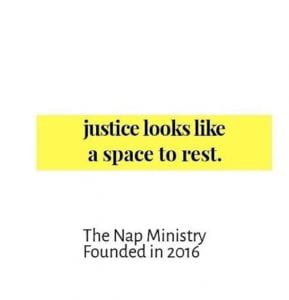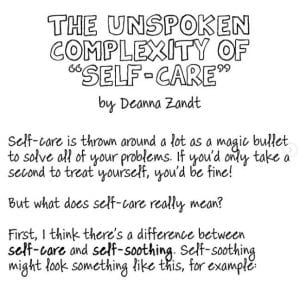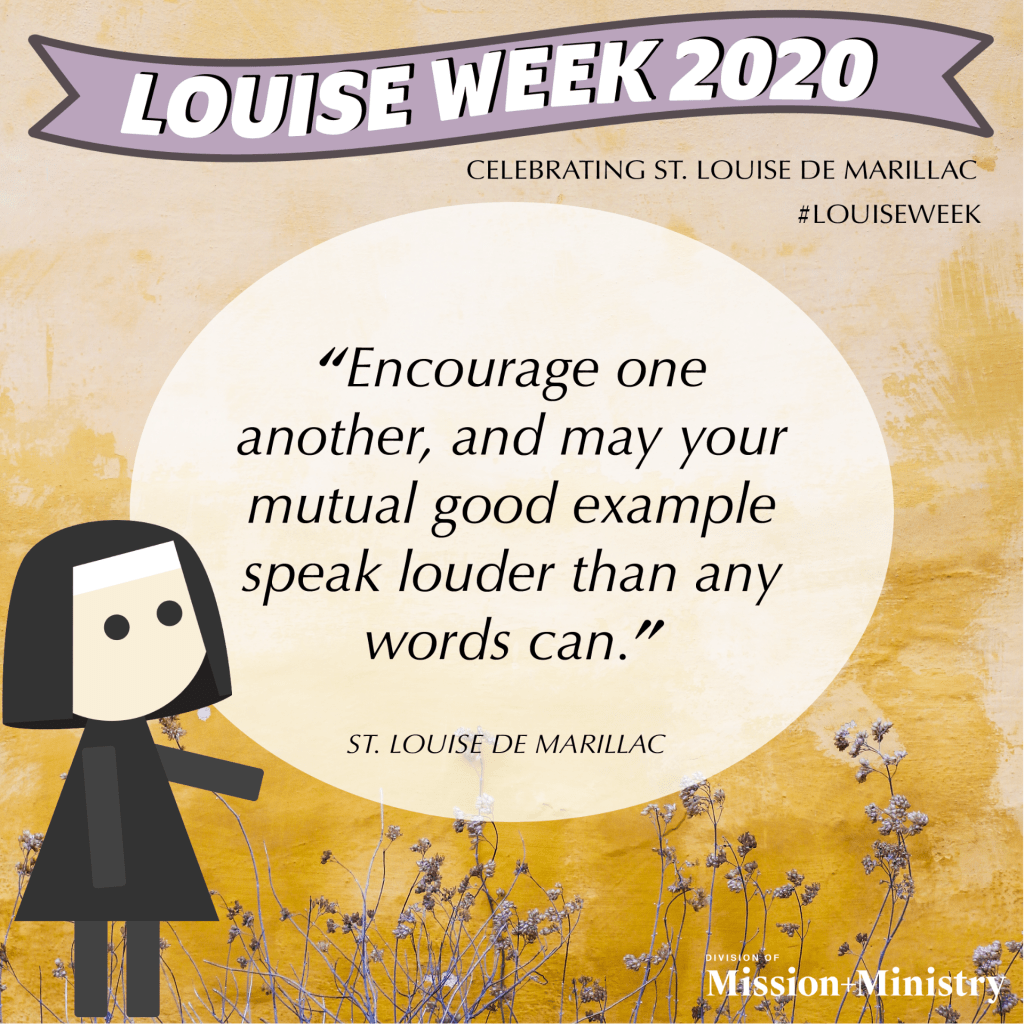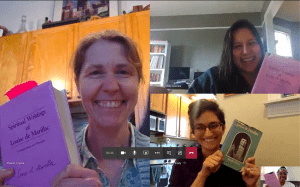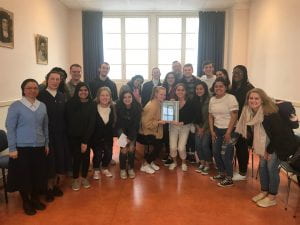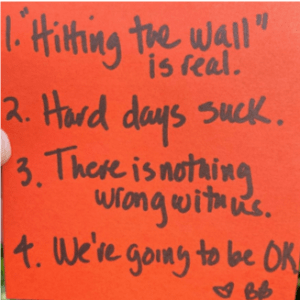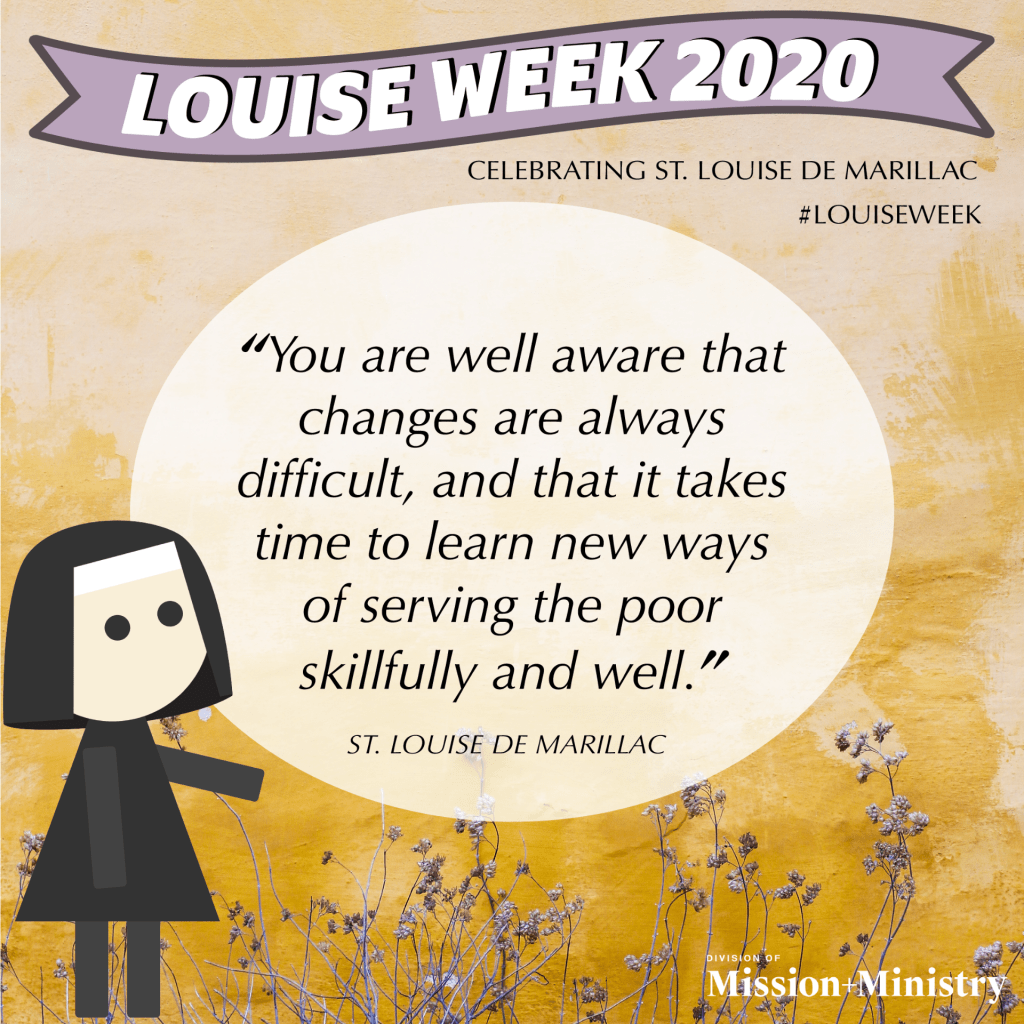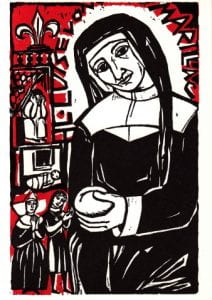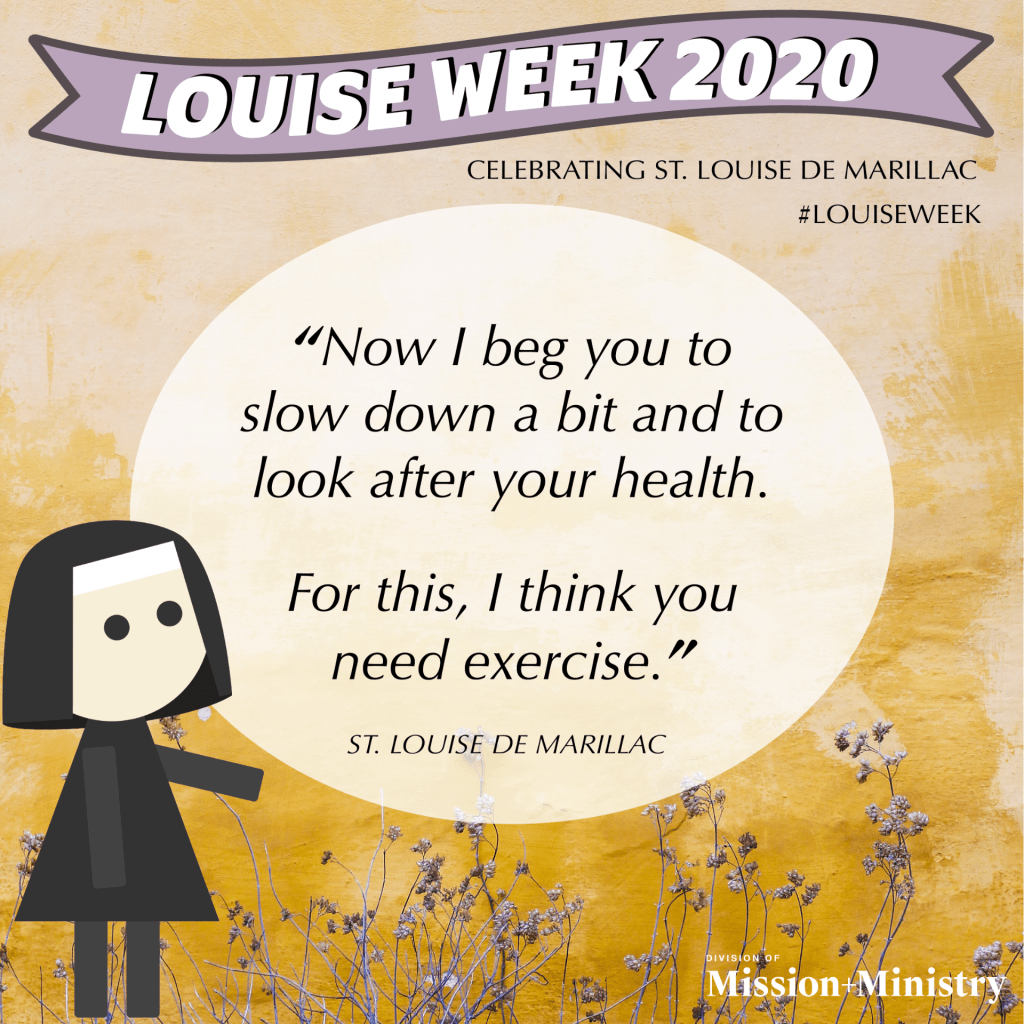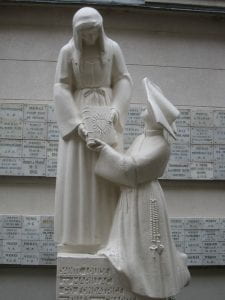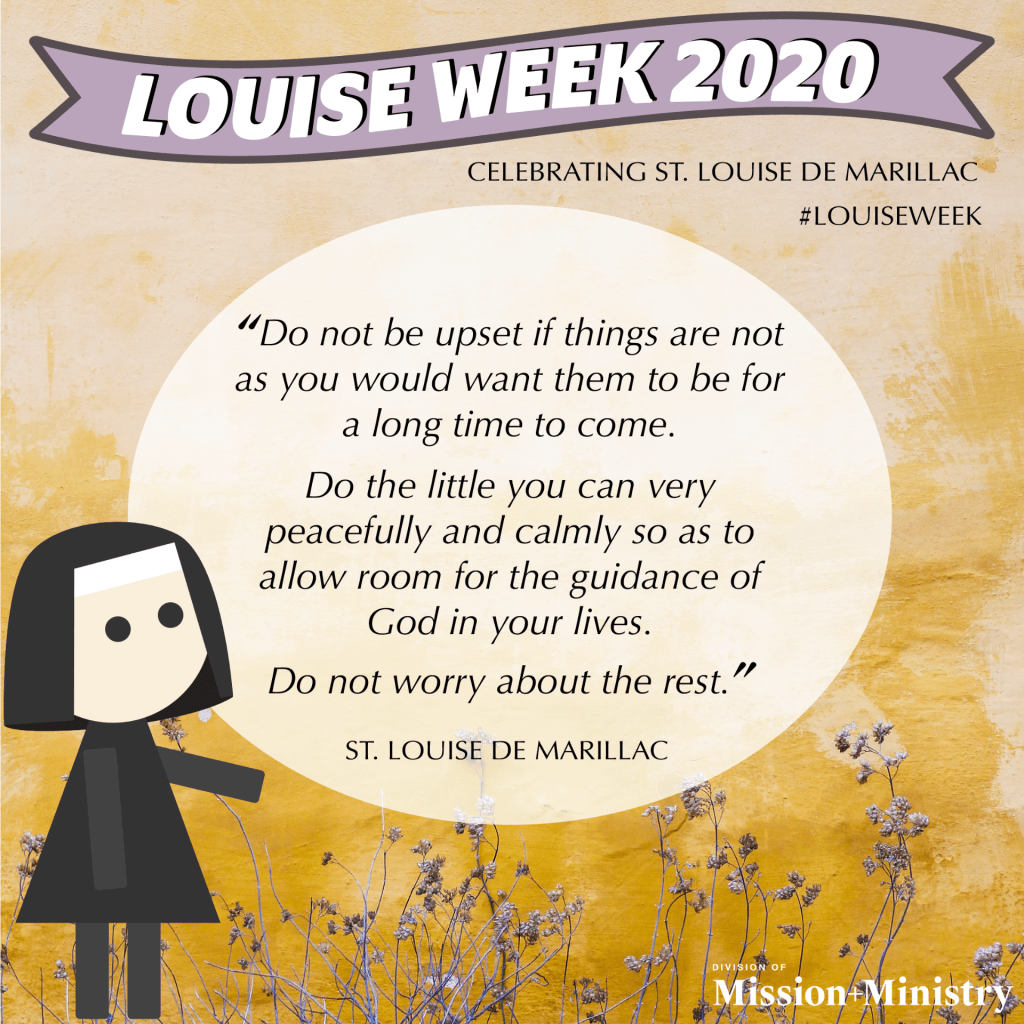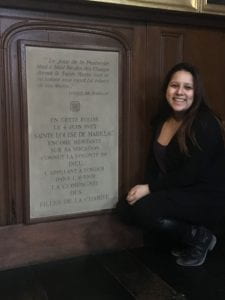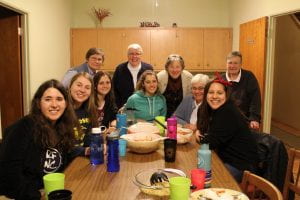By
Minister Jené Colvin
Religious Diversity & Pastoral Care Team
Division of Mission & Ministry
You ever say a word enough times or write it enough times that it doesn’t seem like a word anymore? (It’s called semantic satiation by the way. My spouse told me. It helps to be married to someone as nerdy as you are.) Then there are the times we use a term or concept so broadly and so sweepingly that it loses its weight and true meaning. “Community” can sometimes be one of those words. “Systems” sometimes loses its impact because we treat it like salt, instead of the right herb or spice for the conversation. This is all just leading up to one big disclaimer: I’m going to use these terms, but I actually mean them.
Today, we are reflecting on Saint Louise’s lifetime of work to create and change systems for the improvement of people’s lives. Today’s theme is “sustained” because we wanted to talk about how Louise was able to remain dedicated to transforming the world. I had a whole reflection written out about how social justice and self-care are not a dichotomy (don’t worry, I’ll still get into that a little bit). And then I re-read today’s quote from Louise: “The greater the work, the more important it is to establish it on a solid foundation. Thus, it will not only be more perfect, it will also be more lasting.”
I am convinced that the foundation is people.
Even when we acknowledge that taking care of ourselves can often be a matter of access and social-systemic bias rather than individual discipline, we are still left with the question of “how?” How in the world do I keep trying to change the world and not burn out before I am halfway through my life? In everything good we try to do, people are our greatest asset.
Two weeks ago, I attended a virtual birthday party for one of my best friends. Her partner wanted to make sure she was celebrated in a way she truly deserved, despite the fact that we couldn’t gather in person. But, right on brand for her, she spent time during her own birthday party elevating the work her friends were doing. She said, “Everything you need is in this [room]!” Finally, she made sure we had everyone’s receipts and contact information before we all left that virtual space. Jade T. Perry is one of my people. And I am sustained by her.
Even though we’re not in the office, I’ve knocked on my co-workers’ virtual doors for ideas, advice, and help in processing things more times than I can count. There are more than twenty-five faithful, praying, laughter-filled, loving, snack-, resource-, and time-sharing people in Mission and Ministry. They are my people. I am sustained by them.
When I was in high school, my sisters and I started throwing gumbo parties. Everyone would bring one or two ingredients. We all ate, and no one had to break the bank. It’s a practice I’ve repeated over the years. No one judges what someone else chooses to purchase from the list, and everyone eats until they are full. Our friends are always our family, our people. And we have been sustained by them over and over again.
Min. Candace Simpson has a vision she calls “Fish Sandwich Heaven.” It’s a play on the miracle where Jesus feeds the multitude with a few loaves of bread and a couple of fish from a little boy in that multitude. In her sermon, A Packed Lunch, she helps us imagine how much can be done when people are generous with their “extra bread.” She is one of my people. And I am sustained by her.
When I thought my life was unraveling beyond repair, that I couldn’t come close to doing what I felt like I was supposed to in life—basically when I was Louise right before the lumière kicked in—people were present with me through it, and people helped me to the next stage. Community has sustained me.
The best work we do is not when we pour out of ourselves until we are empty or until we are dead. Our best work happens in community, where there is reciprocity and a consensual exchange of resources, ideas, and love. Our best work happens when we believe there is actually enough. There is enough time. There is enough for everyone to have what they need. There is enough sun to shine on all of us. There is enough trust and enough stage and enough accolade. There is enough to barter. There is enough to give some away. There is enough help. There is enough opportunity. That is, if we trust that people are our greatest asset: people who share and are shared with.
Every creative way around oppressive systems is found in the connections formed and strengthened between people. It’s the very reason so many systems that we have to fight in the first place stratify or separate us from each other or force us back together without realizing that unity is not sameness.
Saint Louise is heralded as the patron saint of social workers. Social work is a wide-ranging field that addresses everything from the most basic of human needs to advocacy for policy that supports the improvement of our living conditions. More often than not, it’s done by sustaining and improving our connections to each other and the resources we share with each other.
Some of the best wisdom from Saint Louise comes from the letters she wrote to people she was connected to and cared about or who cared about her: her community. Communities are systems. They are not inherently good or bad. Good ones, though, are absolutely necessary and foundational to our work to both impact the world and survive it. Communities can be spaces for creativity and for minding the gaps harmful systems create. Communities can be where people find sustainable care when individual actions and consumption are not enough. See, I told you I’d get around to self-care and social justice.
Conversations about sustaining our ability to engage with and change society very often (and rightly) include conversations about our wellness. This always reminds me of three things: 1) The Audre Lorde quote, “Caring for myself is not self-indulgence, it is self-preservation, and that is an act of political warfare”; 2) The Nap Ministry’s quote “Justice looks like a place to rest”; and 3) Deanna Zandt’s comic about self-soothing, self-care, community care, and structural care.
May you, as I believe Louise did, find good people for a just, solid, and long-lasting foundation for transforming our world.

